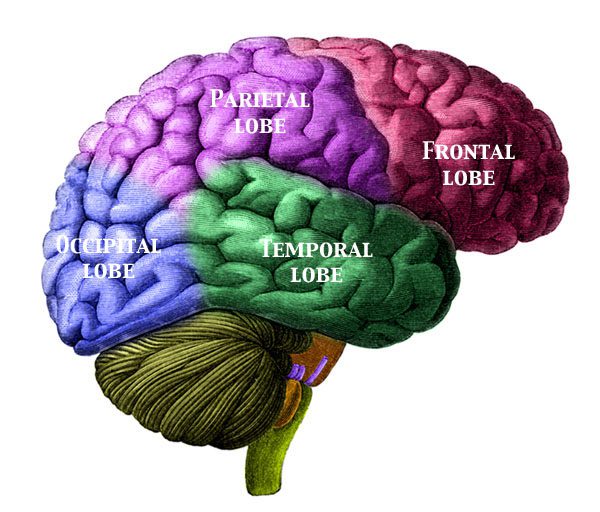Beloved Hollywood actor Bruce Willis has been diagnosed with frontotemporal dementia, according to a statement released by his family. The 67-year-old, known for his roles in movies like Pulp Fiction and the Die Hard franchise, had decided last year to take a step away from acting after developing aphasia. Now, his family have sadly confirmed that his condition has progressed.
“Unfortunately, challenges with communication are just one symptom of the disease Bruce faces,” they said. “While this is painful, it is a relief to finally have a clear diagnosis.”
What is frontotemporal dementia?
Frontotemporal dementia refers to a gradual loss of nerve cells from the brain’s frontal and temporal lobes. As this degeneration occurs, over time the function of these brain regions deteriorates.
The frontal lobes are situated directly behind the eyes and forehead, right at the front of the cerebral cortex. The region is sometimes referred to as the “seat of personality” – it’s the bit of the brain that makes us who we are, with responsibility for things like decision-making, critical thinking, and behavioral control.
The temporal lobes, meanwhile, can be found on either side of the brain near the ears. They are primarily responsible for processing auditory information, allowing us to interpret the sounds and speech that we hear.

The causes of the nerve damage seen in frontotemporal dementia are still poorly understood, and the only known risk factor is having close family members with the disease – it’s thought that a small proportion of cases could be inherited. However, for most people, the disease appears to occur by chance, with no family history.
Frontotemporal dementia is sometimes called Pick’s disease after Dr Arnold Pick, who first described a patient with the condition in 1892.
What are the symptoms of frontotemporal dementia?
Frontotemporal dementia is really a group of disorders that can have slightly different symptoms, arising from the specific functions of the brain regions that are being affected by the degeneration.
Since the frontal lobe is responsible for many higher cognitive processes, patients can experience difficulties with things like planning and organization as the disease progresses, as well as trouble concentrating.
Personality changes are also common with one subtype of the disease, called behavior variant frontotemporal dementia. Friends and family of patients often notice marked changes – they may act more impulsively, appear to lack empathy, and generally behave in ways they would not have done before their illness.
Another form of the disease mainly affects language skills. This is also referred to as primary progressive aphasia. People experiencing this condition may struggle to communicate clearly or to understand what others are saying. Over time, it may become difficult to recognize everyday objects or remember what they’re used for.
Sometimes, with or without other behavioral and communication difficulties, people with frontotemporal dementia can also develop movement disorders that can mirror the symptoms of Parkinson’s disease.
How is frontotemporal dementia different from other types of dementia?
A major difference between frontotemporal dementia and other forms of dementia, like Alzheimer’s disease, is that frontotemporal dementia tends to occur in younger people.
It is most common in people aged between 40 and 60, but can affect people outside of this age range. By contrast, Alzheimer’s disease is considered rare in people under the age of 65.
While memory loss does often occur with advanced frontotemporal dementia, it’s not as characteristic a symptom as it is in Alzheimer’s disease. By contrast, behavioral changes tend not to be seen in Alzheimer’s patients until the disease has progressed, but these may be the first noticeable symptom of frontotemporal dementia.
Can you treat frontotemporal dementia?
There is currently no known way to prevent or cure frontotemporal dementia. For most people, the treatment focuses on strategies to help them cope with their symptoms and maximize their quality of life.
This can include occupational therapy, speech and language therapy, physiotherapy, and relaxation techniques. People with the condition may feel more comfortable following a set daily routine, and dementia-friendly social programs and support groups can be very beneficial if people have access to them.
It’s also important that those caring for people with frontotemporal dementia remember that, although personality changes may cause them to act irrationally or inappropriately, this is a symptom of the disease.
Sadly, there is no way to stop the progression of the disease once it has started, so a patient’s symptoms will gradually worsen over time. This can vary greatly between people. According to the National Institute on Aging in the US, the typical life expectancy for people with frontotemporal dementia is around six to eight years.
All “explainer” articles are confirmed by fact checkers to be correct at time of publishing. Text, images, and links may be edited, removed, or added to at a later date to keep information current.
Source Link: Bruce Willis Has Frontotemporal Dementia – What To Know About The Disease